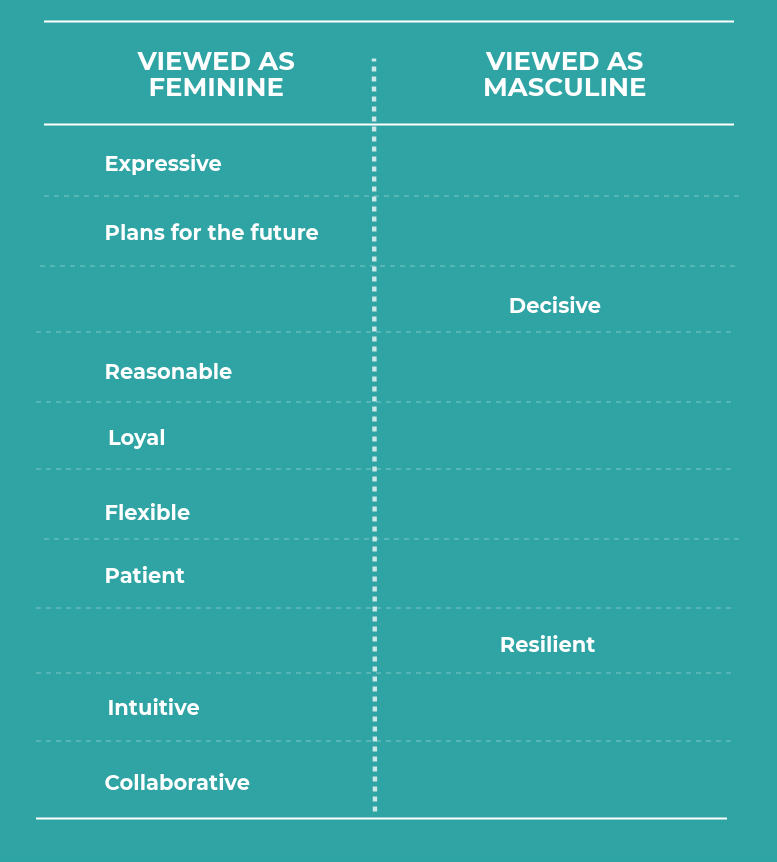Women are better leaders than men. At least, that’s what this assessment of 3,000 managers, conducted at the BI Norwegian Business School, found.
Leadership experts, coaches, and researchers know that the values women leaders bring to a company powerfully boost revenue generation.
This week, Templar consultants Carolina Perez Sanz and Paul Minx explore the idea that women need to select themselves for leadership if they want to materialise the intrinsic values that make them effective leaders.
Motivation
Firstly, because women leaders motivate their employees more than men leaders do, this Gallup study showed. In our coaching sessions to all sorts of employees, we’ve consistently found that people working for women report that their bosses help them understand their self-worth and the strategic value that each contributes.
Expressiveness
Secondly, because women model qualities that workers appreciate in the leaders they work for. John Gerzema, author of The Athena Doctrine, found that among the top 10 competencies that 64,000 people across the world identified as indispensable for today’s leader, only two, decisive and resilient, are considered masculine characteristics. The other eight are typically thought of as feminine.

(Source: Harvard Business Review)
Social awareness
And thirdly, because women are more socially aware, which means they understand and adapt to the dynamics of social interaction better than men do. That social acumen allows women leaders to handle teams more effectively, de-escalate potential in-group crises faster, and task employees with work more attuned to their personalities and inclinations.
Self-selection
But none of this can happen if you don’t select yourself to lead in the first place.
Having coached a large number of women at different levels of seniority over the years, we identify a common pattern: women want to lead, but too often expect someone else to designate them as leaders. Whilst there might be a variety of reasons for this to happen, the consequence is unequivocally one–leadership opportunities don’t flock around those who don’t raise their hand.
Show–Don’t tell
Raising your hand implies not only that you want to do the job but also that you see yourself doing the job, which is the critical piece.
Master storytellers don’t tell us what the characters think or feel; they show it through the characters’ actions.
It’s not enough to say that I want to lead if my actions and behaviors don’t demonstrate that I am a leader–even if my job title says otherwise.
As Sylvia Ann Hewlett pointed out in her book Executive Presence (EP), demonstrating leadership does not merely rely on the ability to do the job very well. In addition to displaying mastery, aspiring leaders need to behave, communicate and look as someone who is already a leader. Qualities such as composure, emotional intelligence or decisiveness reveal one’s gravitas, which, according to Hewlett’s findings, is the dimension that most strongly impacts a professional’s EP.
Decisiveness
Gerzema’s survey ranked decisiveness as the third essential trait of the effective leader. Although women are equally good at decision-making than men, they’re often perceived as irresolute. Why? Because they’re more alert to risks and ponder the consequences more thoroughly before deciding, as Dr. Therese Huston explains in this Forbes interview. In other words, decision-making may be a lengthier process in women, but it potentially results in a more robust outcome.
Therefore, we need to coach women to show decisiveness, not to be decisive–because they already are.
One way to improve the impression of decisiveness, as Dr. Lois P. Frankel suggests in Nice Girls Still Don’t Get The Corner Office, is to keep your thinking to yourself and to be strategic about what (and when) you share with others. For example, give your team a timeline for your decision, and stick to it. There’s nothing wrong with being thoughtful; the problem comes with doubting and getting stuck.
Self-confidence
Another trend we observe in our coaching sessions is that women tend to seek perfection, while men tend to look for progress. This attitude could contribute to delaying women’s decision-making: they want to make sure their decision is the best one.
But common knowledge tells us that perfect is the enemy of good. If we wanted everything we did to be perfect, we wouldn’t finish a single task. For example, this 2015 Forbes article suggested that Marissa Mayer’s perfectionism and tendency to micro-manage was, among other things, at the root of her failure as Yahoo’s CEO.
And what does such a stubborn pursue of perfection tell you about someone’s self-confidence? Maybe that it’s not very high? Do they feel judged and need to prove themselves to an authority figure? Are they looking for approval and validation? Do they not trust their own judgment?
Strategic networking
As the saying goes, it’s not what you know but who you know. Still, women tend to have fewer work-related connections and use them for career advancement less than men do. And once they reach out to people for some input on a decision, for example, they feel obliged to use that feedback. This, in turn, increases the complexity and timing of their decision-making process.
Our advice is, be strategic. Seek out input and advice only from people in your network who are relevant to the matter you’re working on–and ignore the rest.
Also, be strategic when choosing with whom you share personal or emotional issues that might affect your job performance. Colleagues and work-related connections are probably not the right persons for that.
Executive coaching helps professionals develop specific areas of improvement, such as showing decisiveness, boosting self-confidence, and navigating strategic networking. The additional benefit is that, by engaging an external coach, aspiring leaders don’t reveal their vulnerabilities at work.
In future posts, we’ll show you how some of our clients achieved their goals with a little guidance and a great deal of personal effort. As you’ll see, the journeys are not easy but definitely worth trying.


